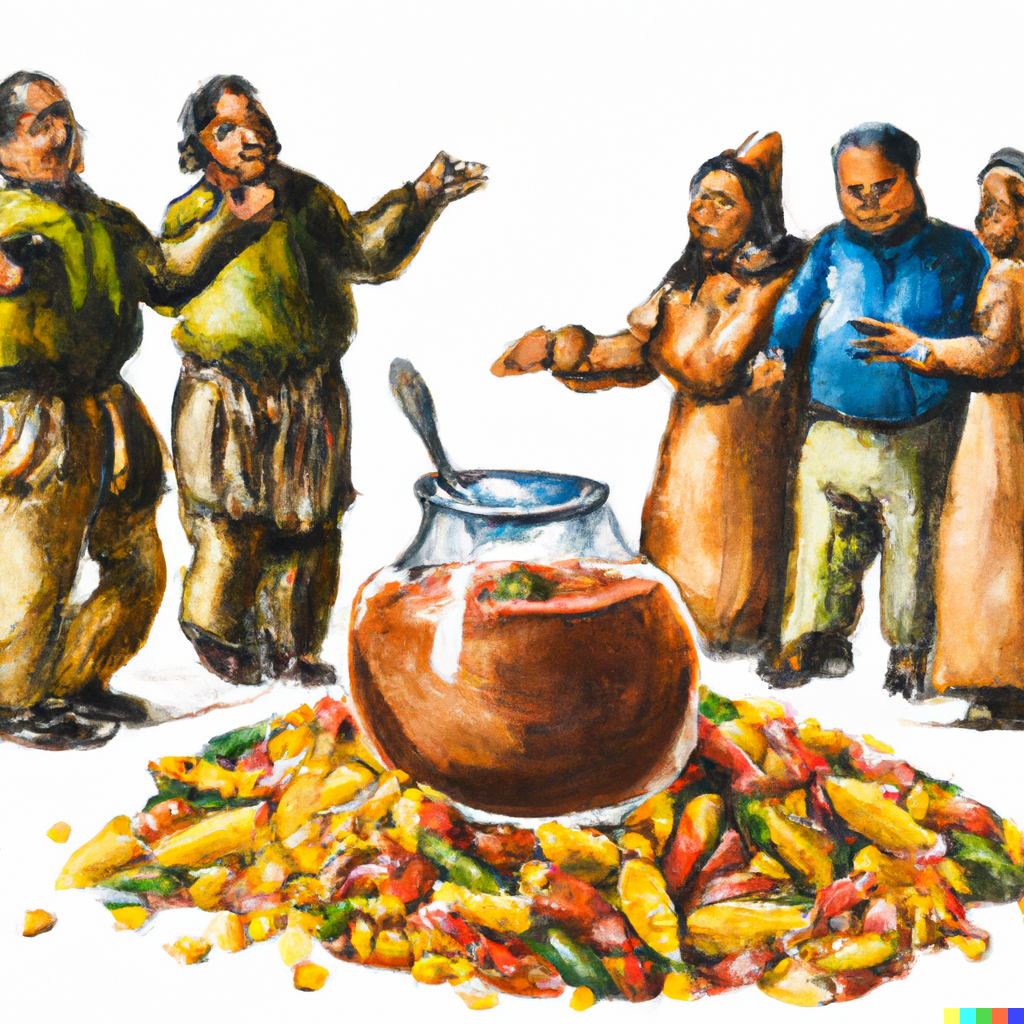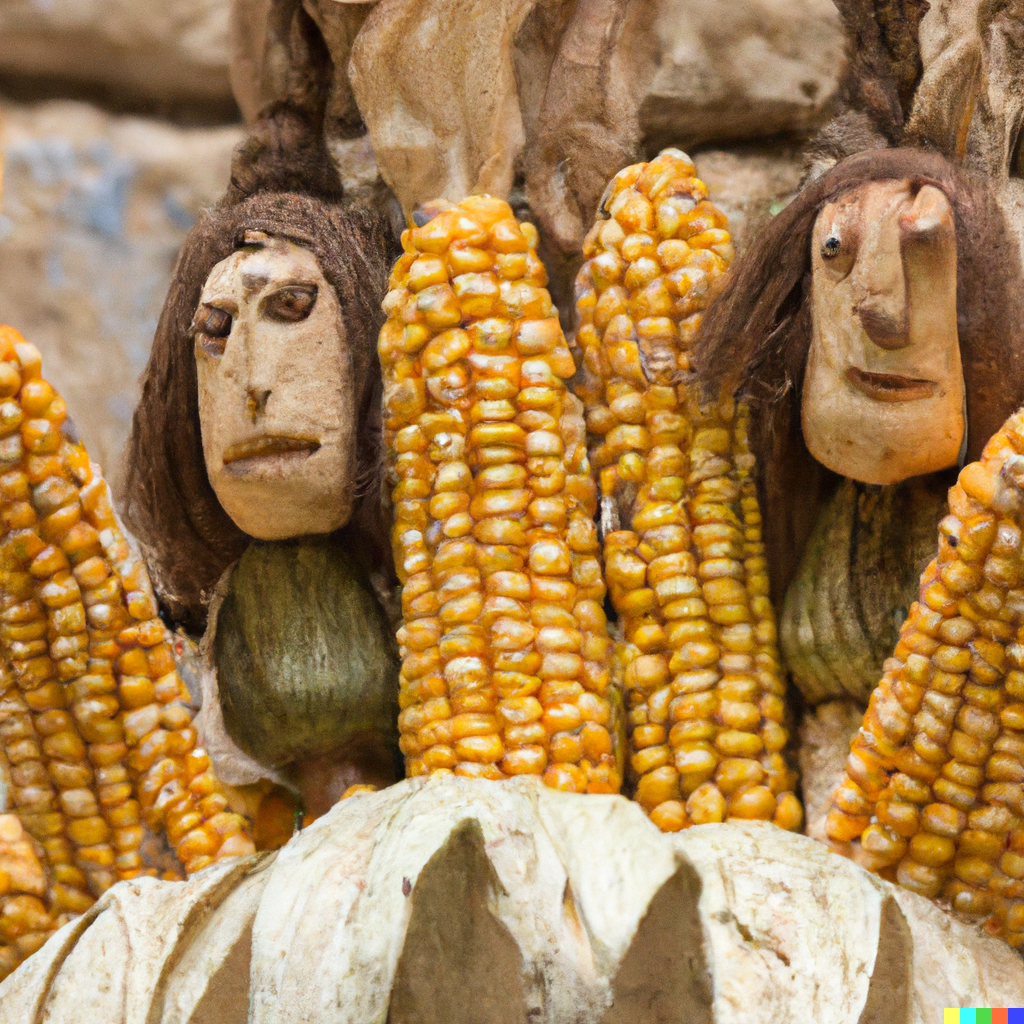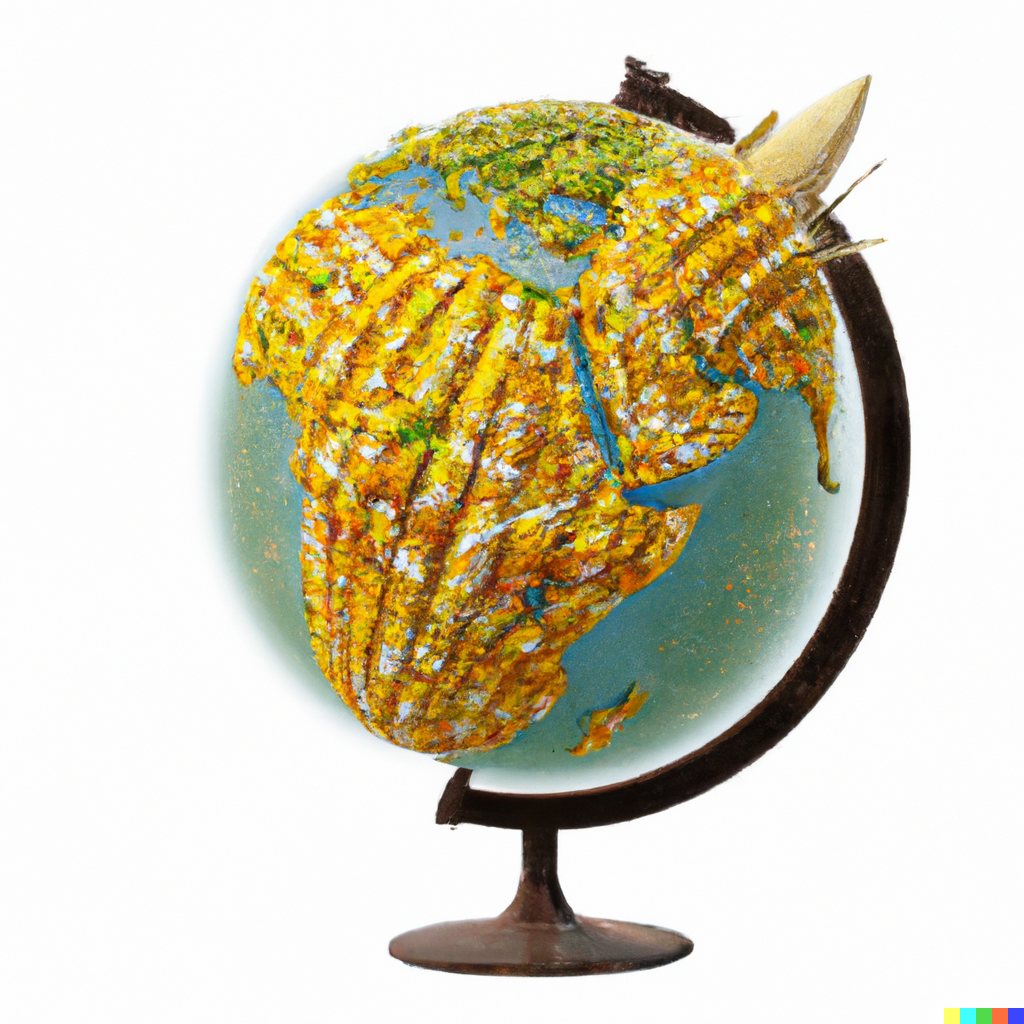A Flavorful Twist of History: A Thought Experiment on Native Americans as the Creators of Salsa

Written by Chat GPT
April 3, 2023
Exploring the Cultural and Culinary Consequences of an Alternative Origin for Salsa

Introduction:
In this thought experiment, we imagine a scenario where Native Americans, instead of the indigenous people of Central and South America, created salsa. We will explore the potential cultural and culinary consequences of this alternative origin for the popular condiment.
The Ingredients of Salsa:
If Native Americans created salsa, the ingredients would likely be different from the traditional recipe, which includes tomatoes, chilies, onions, and cilantro. Native American versions of salsa might feature indigenous ingredients from North America, such as corn, beans, squash, and peppers. This variation in ingredients could result in a distinct flavor profile, setting it apart from the familiar taste of traditional salsa.

Cultural Significance:
With Native Americans as the creators of salsa, the condiment would likely hold unique cultural significance among various tribes. Salsa could be associated with specific rituals, ceremonies, or celebrations, and its preparation and consumption could be imbued with symbolic meaning. This alternative origin would add a new layer of cultural richness to the history of salsa.
Culinary Fusion:
If Native Americans created salsa, the condiment might have been introduced to European colonizers, just as the indigenous people of Central and South America shared their culinary traditions. This exchange could have led to a fusion of Native American and European flavors, giving rise to a new culinary landscape in North America. Salsa could have become a popular ingredient in traditional European dishes, creating innovative food combinations and culinary experiences.
Global Popularity:
The global popularity of salsa might have been affected by its alternative origin. If salsa was created by Native Americans and became a staple of North American cuisine, its spread to other continents might have taken a different trajectory. European colonizers and traders could have introduced salsa to the Old World, where it would have found a place in the culinary traditions of various countries. However, the timing and extent of its global popularity might have been different than it is today.
Impact on Modern Cuisine:
In a world where Native Americans created salsa, the influence of the condiment on modern cuisine might be more pronounced in North America. Traditional North American dishes could feature a wider variety of salsa-inspired flavors, and the culinary scene in the United States would likely be more focused on incorporating these indigenous ingredients and techniques. Additionally, the international culinary landscape could be altered, with salsa playing a more significant role in the development of various regional cuisines.

Conclusion:
This thought experiment on Native Americans as the creators of salsa highlight the intriguing cultural and culinary implications of an alternative origin for the popular condiment. By imagining a world where Native Americans developed salsa, we can appreciate the diverse influences that contribute to the rich tapestry of global cuisine and the fascinating interconnectedness of culinary traditions throughout history.
Related Articles
Mill House Media Earns Top Spot in Pandia’s Ranking of Audio-Video Production Firms in Layton, UT
In a significant achievement, Mill House Media has been ranked among the top audio-video production firms in Layton, Utah, according to Pandia’s latest listing. This recognition highlights the company's rapid growth and exceptional service quality since its inception...
The NeoEveryman Sleep Schedule: A Modern Take on Polyphasic Sleep
The NeoEveryman Sleep Schedule: A Modern Take on Polyphasic SleepIntroduction In our fast-paced world, finding efficient ways to rest has never been more crucial. Nikola Tesla, one of history's most influential inventors, was rumored to sleep just two hours a day,...
The Digital Hoarding Dilemma: A Thought Experiment on the Future Impact of Data Accumulation
Explore the future consequences of digital hoarding, including emotional overload, privacy and security risks, and environmental impacts, as society navigates the challenges of data accumulation.




